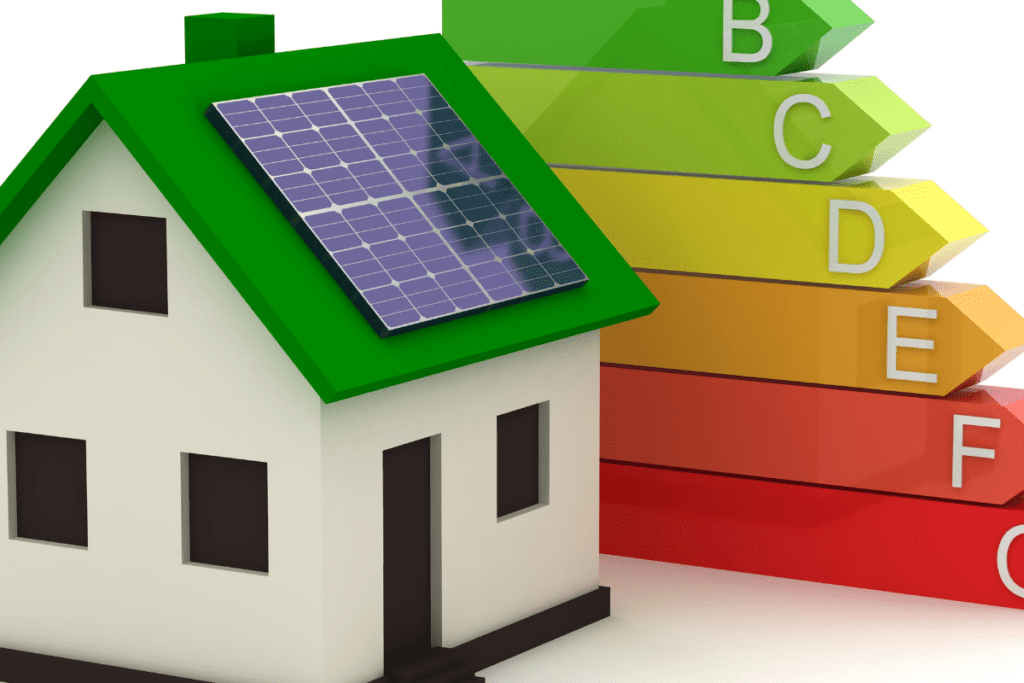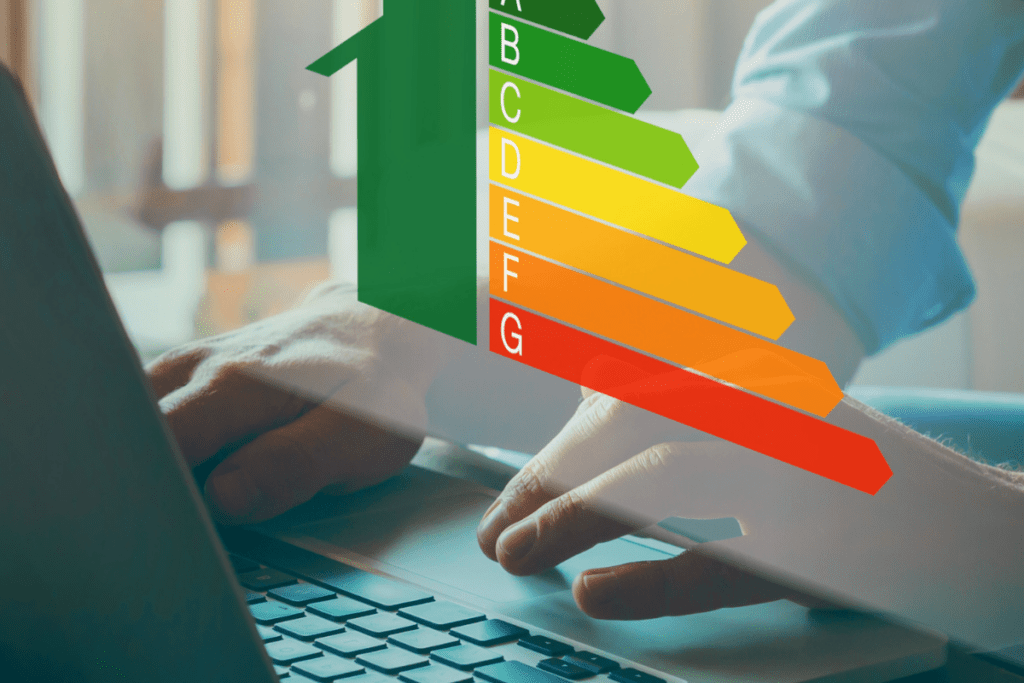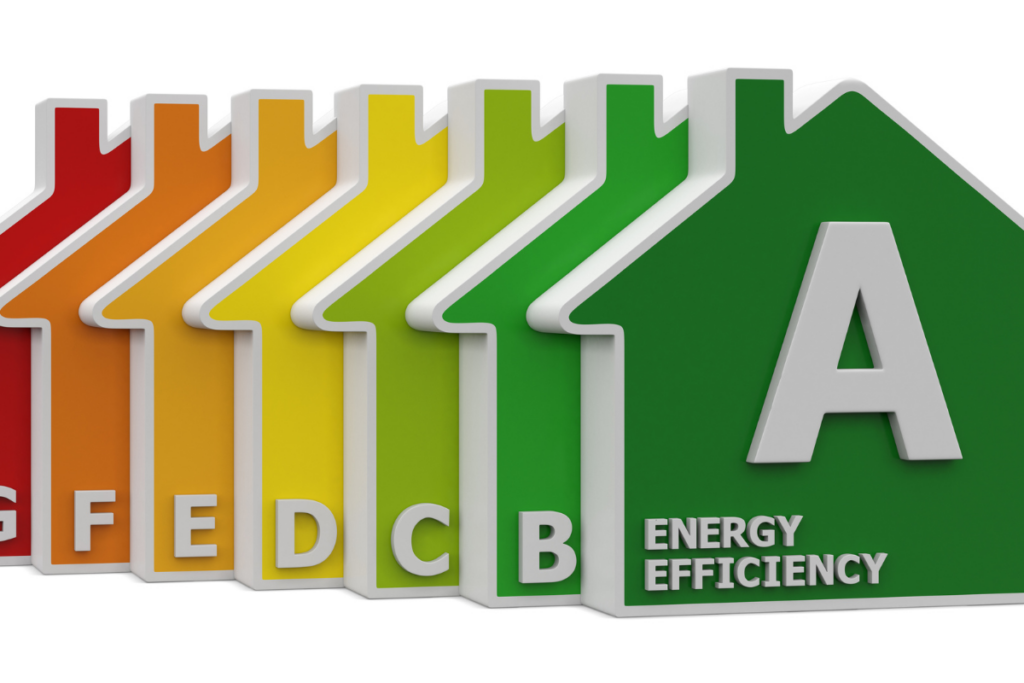Energy Performance Certificates (EPCs) play a pivotal role in the world of real estate and energy efficiency. Whether you’re buying, selling, renting, or simply looking to make your home more energy-efficient, EPC ratings are a crucial piece of the puzzle. In this comprehensive guide, we’ll delve deep into EPC ratings, what they mean, and how they can influence your decisions regarding energy consumption and property transactions.
Request a quotation for an EPC here
What is an EPC rating?

An Energy Performance Certificate (EPC) rating is a numerical measure of a property’s energy efficiency. It provides valuable insights into how efficiently a building uses energy and offers recommendations for enhancing its energy performance. These ratings are presented on a scale from A (most efficient) to G (least efficient), with ‘A’ being the most desirable.
The EPC Rating Scale
-
- A: 92-100 points (most efficient)
-
- B: 81-91 points
-
- C: 69-80 points
-
- D: 55-68 points
-
- E: 39-54 points
-
- F: 21-38 points
-
- G: 1-20 points (least efficient)
What do EPC ratings mean?
Here’s a detailed breakdown of what EPC ratings actually mean.
A: Properties with an ‘A’ rating are at the top of the efficiency ladder. They are exceptionally energy-efficient and come with the benefit of significantly lower energy bills. ‘A’ rated properties typically boast well-insulated walls, roofs, and energy-efficient heating systems.
B: ‘B’ rated properties are also considered highly efficient. They feature good insulation and various energy-saving features, making them cost-effective to run.
C: Properties with a ‘C’ rating meet the minimum energy efficiency standards required by building regulations. They represent average energy efficiency.
D: A ‘D’ rating suggests that a property’s energy efficiency is moderate. Such properties may require improvements to reduce energy consumption. They are generally less efficient than A, B, or C rated properties, however this is where most homes in England Wales fall.
E: ‘E’ rated properties are less efficient and often come with higher energy costs. However, they can benefit from energy-saving upgrades to improve their rating.
F: An ‘F’ rating indicates inefficiency, resulting in higher energy bills. Significant improvements are necessary to achieve higher ratings.
F: ‘G’ rated properties are the least efficient. They have the highest energy costs and require substantial energy-saving measures to become more efficient.
Overall, EPC ratings of A or B are viewed as excellent in terms of energy efficiency. These ratings suggest that the property is well-insulated, probably possesses modern heating systems, and may even feature renewable energy technologies such as solar panels. Lower energy bills and a smaller carbon footprint make these properties more appealing to potential buyers or tenants. Ratings of E, F, or G, are considered poor and reflect a high level of energy inefficiency. These properties usually have steep energy costs and could substantially benefit from enhancements in energy efficiency.
However, while EPC ratings can offer a summary of a property’s energy efficiency, they’re not the only aspect to consider. Factors such as the age and type of the property, the residents’ lifestyle, and specific heating and cooling requirements can all affect energy consumption.
Why EPC ratings matter

EPC ratings are essential for several reasons, whether you’re planning to buy or sell a property, or just want to improve your own home’s energy performance. Below are some of the key benefits of getting an EPC and understanding what is a good EPC rating.
1. Informed decision-making
When searching for a new home, EPC ratings provide valuable information about a property’s energy efficiency. Higher-rated properties (A to C) are more attractive as they come with the promise of lower energy bills. Buyers and renters can factor this into their decisions. Sellers and landlords can use EPC ratings to highlight the energy efficiency of their properties, making them more appealing to potential buyers or tenants. If a property is constructed, sold, or rented, an EPC is needed. This certificate provides information regarding a property’s energy consumption, usual energy costs, and advice on how to lessen energy use and save money.
2. Cost savings
Understanding a property’s EPC rating can help homeowners and tenants anticipate energy costs. Higher-rated properties are more energy-efficient, which translates to lower energy bills over time. This knowledge can significantly impact a household’s budget.
3. Environmental impact
Energy-efficient homes have a reduced carbon footprint. Choosing or improving a property with a higher EPC rating contributes to environmental sustainability by reducing energy consumption and greenhouse gas emissions.
4. If you’re renting your property
Currently, you must have a minimum EPC rating of ‘E’, however this is due to be changed to ‘C’ by 2025. That means that you’ll need to ensure your property meets the ‘C’ rating to rent your property legally by that time. Read more about what the new EPC rules mean for landlords here.
Does EPC rating affect house price?
A strong EPC rating can make a property more desirable to prospective buyers or tenants. High ratings suggest that the building is energy-efficient, which could lead to lower energy costs. It also demonstrates the property’s environmental impact, a factor growing in importance for many individuals.
Furthermore, in certain countries, a low EPC rating could restrict what you can do with your property. For instance, in the UK, the Minimum Energy Efficiency Standards (MEES) state that landlords of privately rented domestic and non-domestic properties must have a minimum energy performance rating of E.
How can I increase my EPC rating?
There are numerous methods to boost the EPC rating of a building, such as:
-
- Boosting insulation: This could include insulating the loft, walls, or floors. Appropriate insulation can significantly impact a property’s energy efficiency.
-
- Modernising the heating system: Up-to-date heating systems are typically more energy-efficient.
-
- Installing double glazing: Double glazed windows can help prevent heat loss.
-
- Using energy-efficient light bulbs: These utilise less electricity than conventional light bulbs.
-
- Implementing renewable energy technologies, like solar panels or a heat pump.
For more insight into raising EPC ratings, read our post on how to improve your home’s energy efficiency.
Overall, while an EPC rating of A or B is considered excellent, it’s crucial to remember that the EPC is just a guideline. Each property is unique, and what might be energy efficient in one property might not be in another. Hence, it’s essential to use the EPC as a starting point and seek professional guidance to implement the most appropriate energy efficiency enhancements for your property.




